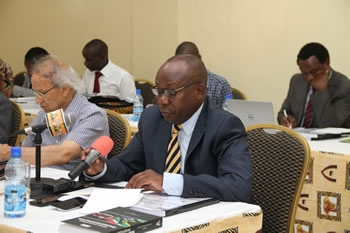Strengthening government lawyers’ capacity to negotiate and manage contracts

The Rwandan government faced a significant loss of public money due to delays stemming from poor quality government contracts. This, together with ineffective contract management, had long hindered government-investor relationships, negatively impacting economic growth in Rwanda.
In order to tackle this problem, the Rwandan Ministry of Justice (MINIJUST) rolled out a program of reform, and in August 2015, ROLE UK was asked to deploy three UK lawyers to provide capacity building support for the ministry on a pro bono basis. This was to include face to face advice and training sessions for legal officers to better negotiate and manage commercial contracts, jointly delivered with legal advisers from MINIJUST.
ROLE supports assignments that can demonstrate longer term sustainability and where a need for UK expertise is clear. In this instance, the DFID funded Legal Assistance for Economic Reform (LASER) programme had been working with MINIJUST since 2014 to help them improve capacity on contract management including developing model contracts. The technical assistance requested was part of and intended to build on this work; and LASER’s ongoing programme could provide proactive follow up, which was likely to support longer-term, more sustainable outcomes.
Moreover, the Rwandan government is keen to benefit from high level technical support from the UK international pro bono sector – the genocide in Rwanda severely dented technical capacity in legal and judicial institutions and the government is committed to developing a hybrid civil-common law system. ROLE was therefore ideally placed to support this work.
LASER identified a team of 3 lawyers, two of whom were from the Government Legal Department (GLD) and the third, a commercial lawyer in private practice to deliver the training. ROLE found that all 3 specialists had previously contributed to the contract management reform process in Rwanda through their involvement in the development of model contracts and therefore understood the background to the work well.
The lawyers shared their knowledge and experience of drafting, negotiating and implementing contracts from one practitioner to another. Feedback from MINIJUST showed that this genuine peer-to-peer support for government lawyers was particularly valued.
The UK team also appreciated the opportunity to work with MINIJUST and felt that what they learned from the experience would strengthen their work in the UK. This was their first experience of this kind of work and they were keen for more opportunities.
I gained a much better and more nuanced understanding of the risk transfers in a traditional works contract as opposed to Design and Build. I gained a perspective on different approaches to legal advice that involves working across several departments. I enjoyed sharing the UK government lawyer experience and gained insight to the problems faced in complex infrastructure projects. I will apply this knowledge in my work on major government projects.
-Lillian Arinze, GLD

